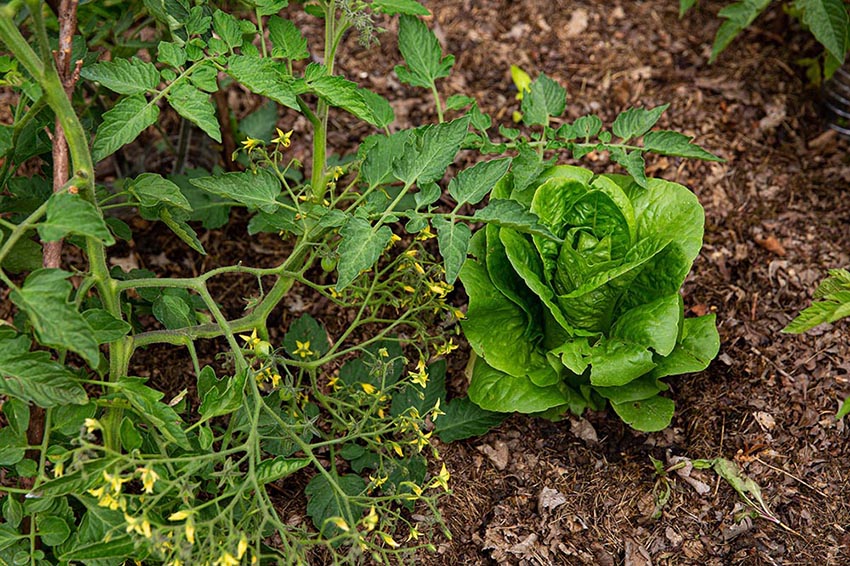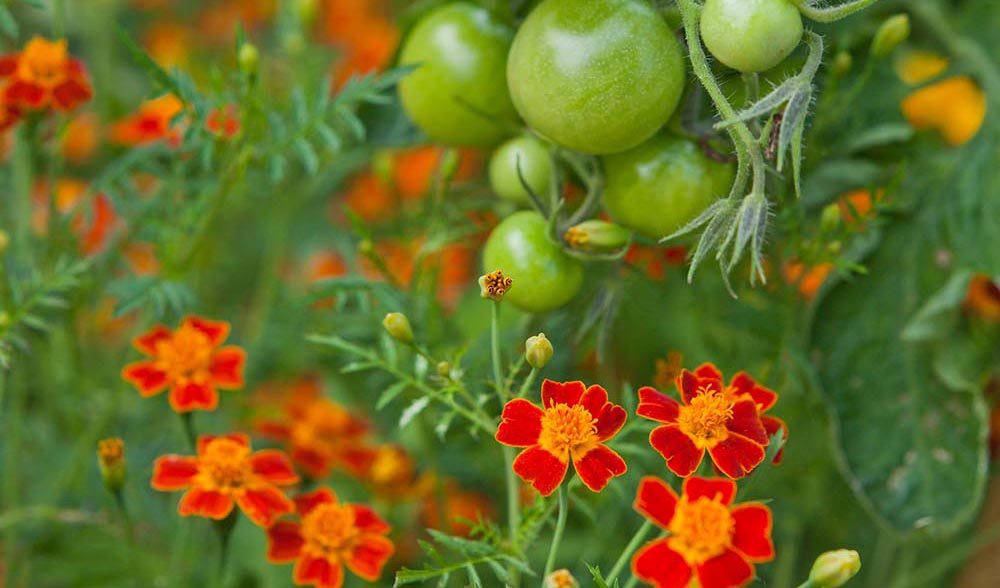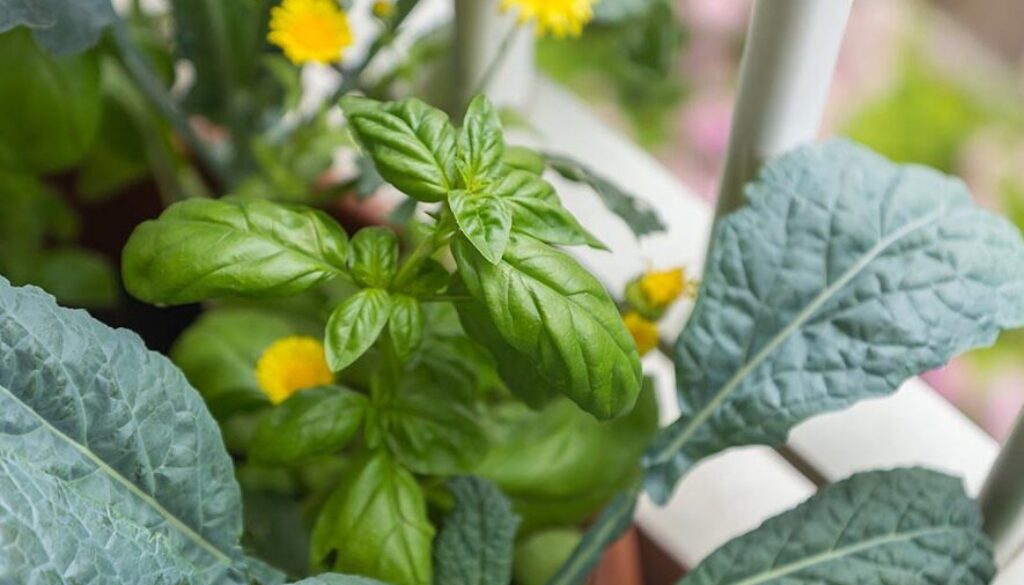HOME & GARDEN: How to make your garden flourish this summer with companion planting
Haskins Garden Centre’s in-house plant expert, Alasdair Urquhart, shares his top tips for the best plants to pair together…


Companion planting is one of the easiest ways to maintain a natural balance in your garden. It offers an organic and sustainable approach to gardening, promoting healthier plants, reduced pest and disease pressure, and improving overall garden productivity. Companion planting harnesses the natural interactions between plants to create a thriving garden ecosystem that lives in harmony.
Haskins Garden Centre’s in-house plant expert, Alasdair Urquhart, said: “The method of companion planting is a simple and cost-effective way of creating a harmonious gardening environment. Many companion plants are strongly scented and can benefit neighbouring plants by confusing pests for example. Other companion plants play the role of attracting beneficial insects, for example, ladybirds, which prey on aphids and support the natural environment.”
Beans can use corn as a trellis for support
Beans and corn are an example of two crops that can be mutually beneficial towards each other when planted in the same area of the garden, as the corn offers a natural trellis to support growing bean shoots.
“Beans act to convert nitrogen from the atmosphere into a soluble form in the soil, which is vitally important for the longevity and successful growth of corn. This natural conversion of nitrogen is important for healthy plant development, as the compound is a major component of chlorophyll. Plants use chlorophyll in photosynthesis, the process by which plants convert light energy into chemical energy.
“In return, the corn acts as a form of natural trellis for helping the upward trajectory and stability of the beans growing alongside them. This is a prime example of using the natural partnerships that exist between different plants and flowers to create a successful and attractive vegetable patch.”
Radishes break up the soil to ease the growth of Carrots
In some instances, there are certain plants that make great companions because they don’t compete for the same food sources.
“Carrots and radishes when planted together can form a harmonious relationship because radishes break up the soil, which makes it easier for the carrots planted in the same area to flourish. Small radishes germinate faster and develop quickly, which allows them to work through the soil before the carrots.
“Carrots on the other side, don’t compete with radishes for nutrients. This means they can be planted as companions and won’t act in a detrimental way towards the growth of the other.”
Basil can deter pests from cucumber
Edible plants can also act as protection for other crops in your garden. The strong and aromatic scent emanated by basil acts as a natural repellent for cucumber beetles.
Alasdair says, “Basil can offer a multitude of benefits to any open space. When planted alongside cucumber, the notable scent often enjoyed in cooking or as garnish is confusing to common pests, such as cucumber beetles. Common signs of cucumber beetles being present in your garden include yellowing of the leaves of cucumber plants, which can lead to wilting and further damage to your crop.
“Basil not only acts as a deterrent for these pests but can also find benefit from being planted with cucumber, which offers shade to prevent the herb plant from wilting in extended periods of hot weather and persistent sunshine. This mutual benefit can create a highly successful home-grown crop yield, that can then be used across a range of delicious recipes and homemade drinks.”
Lettuce and tomatoes: The perfect double-act
Salad planting in your own garden is a cheap and easy way of adding some natural flavour and variety to your cooking. Lettuce and tomatoes make the perfect companion planting pair. Lettuce functions to suppress weeds which commonly damage tomato plants if left unmonitored.
Alasdair says, “Lettuce and tomato planting in the space is a fantastic example of two plants mutually benefiting from each other. As the lettuce acts as a deterrent for weeds, so the tomato plants offer invaluable shade which can prevent the lettuce from bolting and spoiling your crop yield.
“Creating a healthy plot of home-grown tomatoes not only adds some variety to your garden, but the salad itself also offers numerous health benefits when consumed. Tomatoes are a great source of vitamin C, potassium and vitamin K, and taking your homegrown salad from garden to fork is a great way to add some added nutrients into your summer BBQs.”
Roses can be planted alongside French Marigolds
Aphids are a common pest for roses. Sap-sucking insects such as these can damage roses and lead to plant vigour, distorted growth and transmission of plant viruses that are damaging to your garden.
“French Marigolds always add some delightful colour to any garden. Vibrant yellows and oranges stand out in the summer sunshine, and the sweet-smelling flowers add a beautiful summer fragrance to the garden.
“Planted alongside roses, French Marigolds not only contrast well with the colour palette of these flowers but also deter aphids, allowing your crop to bloom in peace, unfettered by pests. This can create a natural, arrestingly beautiful area of a garden without using chemical pesticides to deter troublesome insects. Marigolds release a chemical (thiophene) that helps control nematodes in soil. Additionally, you must be really careful growing marigolds in clay soils as the slightest waterlogging will suffocate their roots.”
Haskins has five garden centres across the South of England and is celebrating 140 years in the Horticultural industry this year. For more information on Haskins Garden Centres and the huge variety of plants and gardening advice available, please visit: www.haskins.co.uk.
Alternatively, you can follow @HaskinsGarden on Twitter and @HaskinsGardenCentres on Facebook to share any garden-related queries and keep up to date with all the latest news.

